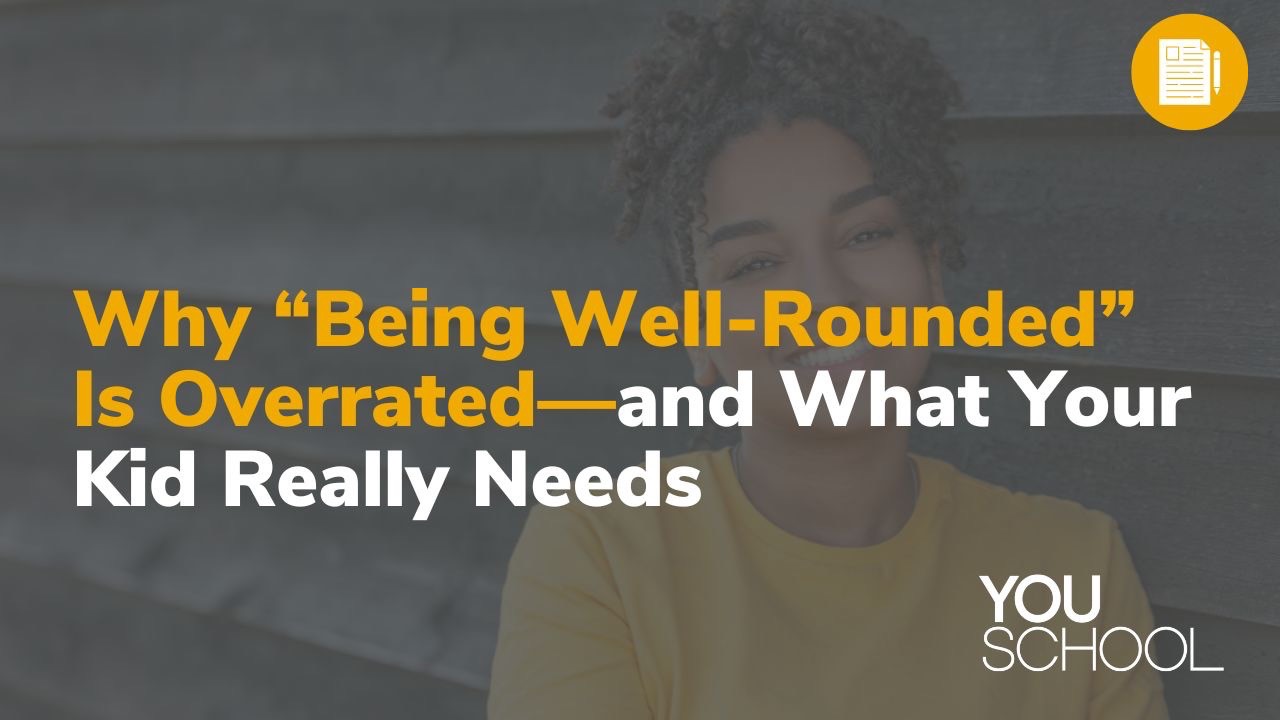Why “Being Well-Rounded” Is Overrated—and What Your Kid Really Needs

What Are Your Strengths?
Why Every Kid Needs to Know the Answer
A high school senior walked into a Starbucks to me with me recently with a resume that would impress anyone: top of her class, varsity athlete, president of multiple clubs, volunteer hours, AP everything. On paper, she looked unstoppable.
But when I asked her, “What are your natural strengths?”—she froze.
She could list her GPA, her test scores, her extracurriculars. But she had no idea what truly made her her. The stuff that came naturally. The things that lit her up. Her real strengths? She’d never been asked.
And that’s the problem.
The Pressure to Be Excellent at Everything
Today’s kids are under pressure to be good at everything. Not just passable—excellent. They’re told to be well-rounded, high-performing, and competition-ready for the elite college admissions race.
But in chasing that kind of polished performance, something important gets lost: clarity about what actually makes them strong.
Instead of being guided toward what makes them come alive, they’re trained to improve what’s weakest, fix what’s lacking, and meet the next expectation.
That creates high-achieving kids who are deeply unsure of their own value.
What Strengths Really Are (and Why They Matter)
We’re not talking about generic compliments like “you’re smart” or “you work hard.” We’re talking about real, core strengths—the kind that shape identity and guide purpose.
According to CliftonStrengths research, a strength is a natural talent that’s been intentionally developed. It’s not just what you’re good at—it’s what energizes you. What you do well, easily and consistently, in a way that adds value to the world around you.
And here’s why that matters:
-
Kids who understand their strengths have higher confidence
-
They experience more motivation and joy
-
They make better decisions about their time, friendships, and future
When a kid can say, “I’m really good at coming up with creative solutions,” or “I’m great at making people feel included,”—they’re not just building self-esteem. They’re forming the foundation of identity and purpose.
What Happens When They Don’t Know
When a kid can’t name their strengths, they default to performing for approval. They aim for perfection instead of alignment. They burn out chasing someone else’s definition of success—and often feel like they’re failing, even when they’re not.
They become exceptional at meeting expectations and completely disconnected from what they actually enjoy or do well. That disconnect isn’t just frustrating—it’s dangerous. Because when purpose and confidence are missing, kids are more vulnerable to anxiety, apathy, and hopelessness.
If a kid can’t name what they’re good at, they’ll never feel confident they have something to contribute.
Strengths Point Toward Purpose
Strengths are often the on-ramp to purpose. Kids begin to realize:
“This thing I do well—it actually helps people.”
“I could build a life around this.”
That’s how purpose starts: when strengths meet value.
You don’t need to have their whole life mapped out. You just need to help them pay attention to what fits.
4 Simple Things You Can Do as a Parent
-
Ask them directly:
“What do you think your natural strengths are?”
“What do your friends rely on you for?”
-
Name what you see:
“I’ve noticed you’re really good at staying calm under pressure. That’s a strength.”
-
Take a strengths assessment together:
Try the CliftonStrengths Explorer or a simplified quiz for teens. Use it as a conversation starter. -
Celebrate the use of strengths, not just the outcome.
When they show kindness, leadership, problem-solving, or creativity—say it out loud.
The Bottom Line
You don’t build a meaningful life by fixing every weakness. You build it by knowing your strengths and pointing them toward something that matters.
So this week, ask your kid:
“What are your strengths?”
Let them wonder. Let them wrestle with it. Let them start owning who they are.
That’s when real growth begins.
